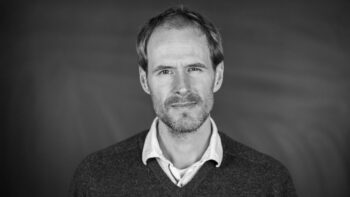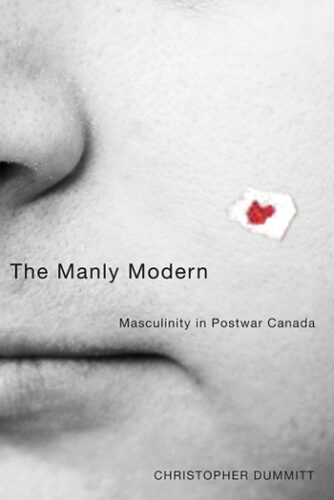By Mark Ellis –

He is a gender historian in Canada, the author The Manly Modern: Masculinity in the Postwar Years. For the last 20 years he attempted to prove there was no such thing as sex, that sexual identity was only a social construction based on power, leading to oppression and inequality.
Now he admits he got it all wrong and much of his academic writings were “made up.”
“If I had known, 20 years ago, that my side in the ideological wars over gender and sex was going to win so decisively, I would have been ecstatic,” writes Christopher Dummitt on the website Quillette.
He is currently Chair of the Department of Canadian Studies at Trent University in Peterborough, Ontario.
 He describes how gender studies took over history departments across North America in the 1990s. “Each of these fields shared the same worldview as I did—that just about every identity was a social construction. And, that identity was all about power,” he notes.
He describes how gender studies took over history departments across North America in the 1990s. “Each of these fields shared the same worldview as I did—that just about every identity was a social construction. And, that identity was all about power,” he notes.
His zeal for his position was unmatched. “There’s nothing so certain as a graduate student armed with precious little life experience and a big idea,” he confesses.
Dummitt realized that people outside the academic world disagreed with him. “Almost nobody who hadn’t been exposed to such theories at a university could bring themselves to believe that sex was wholly a social construct, because such beliefs went against common sense.”
But even he is amazed at the breathtaking speed of the cultural turnaround using such faulty logic.
“Now my big idea is everywhere. It shows up especially in the talking points about trans rights, and policy regarding trans athletes in sports. It is being written into laws that essentially threaten repercussions for anyone who suggests that sex might be a biological reality,” he notes.
Now he offers a “mea culpa” for his role in this, “a detailed critique about why I was wrong then, and why the radical social constructionists are wrong now. I once made the same arguments that they now make, and so I know how they are mistaken.”
After Dummitt finished his PhD in gender history, he published a book on the subject, The Manly Modern in 2007. Five case studies from the mid 20th-century about the masculine aspects of society form the heart of the book.
Now he says he’s ashamed of some of the contents—especially two of his case studies.
While the book didn’t win any awards, it was soon cited by other scholars writing about the history of masculinity.
He wrote another influential article about the connection between men and barbecuing – also cited by academics. “Plenty of young university students, first learning about Canada’s history, have been forced to read that article to learn about the history of gender—and the social construction of gender.
“The problem is: I was wrong. Or, to be a bit more accurate, I got things partly right. But then, for the rest, I basically just made it up.”

But Dummit wasn’t the only fraudster in gender studies. “Everyone was (and is) making it up. That’s how the gender-studies field works,” he observes.
In his public posture, he was angry and assertive about what he thought he knew. “It was to hide the fact that, at a very basic level, I didn’t have proof for part of what I was saying. And that’s what makes it so disappointing to see that the viewpoints I used to argue for so fervently—and so baselessly—have now been accepted by so many in the wider society.”
In Dummitt’s research, he sought to find an explanation for the way postwar Canadians talked about men and women. “I had answers, but I didn’t find them in my primary research. They came from my ideological beliefs,” he notes.
He says his fellow scholars adopted the same approach—and still do. “This is what it was, and is: a set of pre-formed beliefs that are built into the gender-studies disciplinary penumbra.”
“My research didn’t prove anything either way. I just assumed that gender was a social construct and proceeded on that basis.”
He refers to the insulated world of academia as a silo. “I never engaged—at least not seriously—with anyone who suggested otherwise. And no one, at any point of my graduate studies, or in peer review, ever did suggest otherwise—except in conversations, usually outside of academia. And so I was never forced to confront alternative, biologically oriented explanations that were at least as plausible as the hypothesis that I’d dressed up with the air of certainty.”
At a certain point, doubts began to creep into his thinking. How long could the profession keep expanding by simply adding more and more kinds of oppression? Surely, at some point, history would actually be fully inclusive, he thought.
By 2009, Dummitt published a book with an essay entitled “After Inclusiveness,” making this point. While many in his profession privately admitted he was right, no one would say so publicly.
“To reiterate: The problem was, and is, that I was making it all up. These were educated guesses I was offering. They were hypotheses. Maybe I was right. But neither I, nor anyone else, ever thought to scrutinize what I wrote.”
Was gender really about power? To prove his points in his writings he cited other scholars who said it was. “It helped if their names were French and they were philosophers. The work of an Australian sociologist, R. W. Connell, helped, too. He’d argued that masculinity was primarily about power… In reality, his work didn’t prove this; it just plausibly extrapolated from small case studies, just like I had done. So I cited Connell. And others cited me. And that’s how you “prove” that gender is a social construct and all about power.”
The fraudulent scholarship developed in the academic environment and promoted by Hollywood is now finding its way into the legal, political framework. “My flawed reasoning, and other scholarship using the same defective thinking, now is being taken up by activists and governments to legislate a new moral code of conduct.
“It was one thing when I was having drinks with fellow grad students and battling it out in the inconsequential world of our own egos. But now much more is at stake. I wish I could say that the scholarship has become better—the rules of evidence and peer review more demanding. But the reality is that the current almost total acceptance of social constructivism in certain circles seems more the result of demographic change within the academy, with certain viewpoints coming to dominate even more than in my grad-school heyday.
“Until we have seriously critical and ideologically divergent scholarship on sex and gender—until peer review can be something more than a form of ideological in-group screening—then we ought to be very skeptical indeed about much of what counts as “expertise” on the social construction of sex and gender.”



